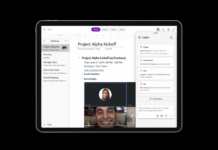According to the latest reports, the tech giant Google has created an AI (Artificial Intelligence) that could predict a series of outcomes for patients, such as how long people can stay in hospitals, their chances of re-entering and the chances of dying.
When Will You DIE? Well, Google’s New AI Has An Answer
A woman with advanced stage breast cancer came to a city hospital. The fluids already flooded his lungs. Two doctors examined her and some x-rays were taken. Hospital computers read her vital signs and calculated a 9.3 percent chance that she would die during his stay.
Then it was the tech giant Google, who came with a new type of algorithm which was created by the tech giant Google itself which studied the women – in total, 175,639 data points – and assessed their risk of death: 19.9 percent. She died in a matter of days.
The heartbreaking death of the unidentified woman was published by the company in May, in an investigation that highlights the potential for the health care of neural networks, a form of artificial intelligence software that is particularly good using data to learn and improve automatically.
The tech giant Google had created a tool that could predict a series of outcomes for patients, such as how long people can stay in hospitals, their chances of re-entering and the chances of them dying soon.
What most impressed the medical experts was the tech giant Google’s ability to examine data that was previously out of reach: notes buried in PDF files or scribbled on old graphics.
The neural network covered all this ungovernable information and then ejected out predictions. This future predicting AI of the tech giant Google did it much faster and with greater precision than the existing techniques. This new Google AI even showed which records led to conclusions.
Hospitals, doctors, and other healthcare providers have been trying for years to make better use of electronic health records and other patient information.
More information shared and highlighted at the right time could save lives, and at least help medical workers spend less time filling out documentation and more to patient care. But current methods of extracting health data are expensive, awkward and slow.
Up to 80 percent of the time spent in current predictive models is spent on ‘dirty work’ of making data presentable, said Nigam Shah, an associate professor at Stanford University who is a co-author of the tech giant Google’s research work. Published in the academic journal Nature.
The tech giant Google’s approach avoids this. “You can throw everything you have and not have to worry about that,” said Shah.
The tech giant Google’s next step is to move this predictive system to the clinics, artificial intelligence chief Jeff Dean told Bloomberg News in May.
Dean’s health research unit, sometimes called Medical Brain, is working on a series of AI tools that can predict symptoms and diseases with a level of hopeful but also alarming accuracy.
So, what do you think about this? Simply share all your views and thoughts in the comment section below.


